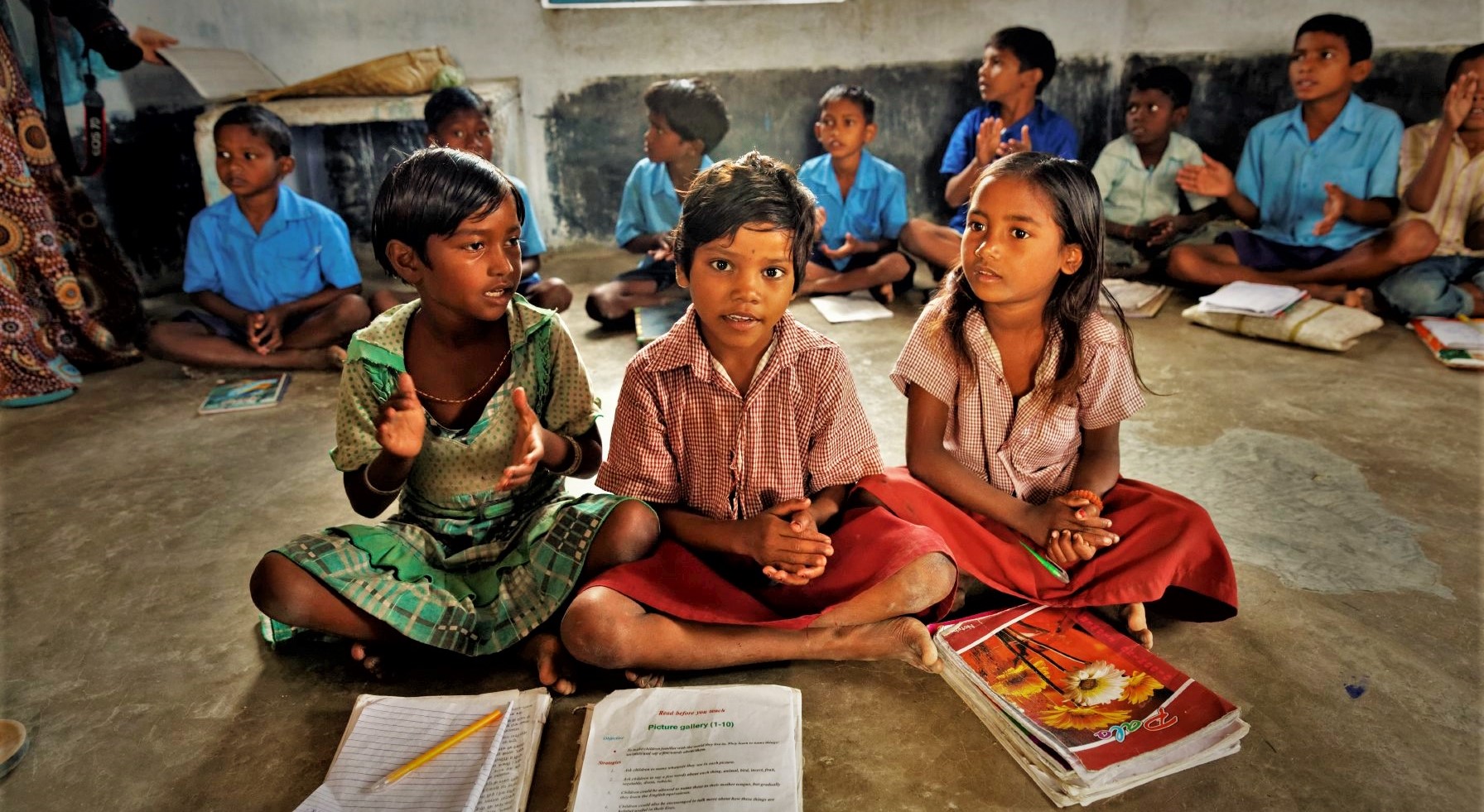
In this back-to-school week, I would like to share with you some thoughts on the issue of altruistic education. This could be seen as an education that is not limited to intellectual development, but also includes the education of basic human qualities. Indeed, many schools have explored different ways of exploiting it.
In 2012, the Dalai Lama identified “education of the heart” as one of the priorities of this century. The Mind and Life Institute is now presenting the benefits of offering pupils and students this “education of the heart”, which would be complementary to the traditional teachings of the school curriculum. They theorize this contemplative education as a “holistic approach that helps students and teachers develop practical skills to understand and manage their own minds, skills that are transformative and fundamental to the healthy development of every person” (1). It combines knowledge from modern research – such as neuroscience – with the practices of traditional wisdom-based philosophies and practices. Karuna-Shechen, the humanitarian association I founded, also strives to offer such education to the underprivileged children it accompanies in India and Nepal (read more on https://karuna-shechen.org/news/discovering-sharing-and-cooperating-to-change-society/).
This more integrated approach to contemplative practices within school curricula is not new. In India, in January 2013 and at the initiative of the Dalai Lama, the University of Delhi decided to include courses on “secular human values” in all its courses. In the United States, under the impetus of the pedagogue and psychologist Mark Greenberg, several hundred schools teach children to better recognise and manage their emotions and those of others, which contributes to reducing the number of conflicts (2). In France, educators such as Daniel Favre, a neuroscientist and professor of educational sciences at the IUFM in Montpellier, have shown through their work and field experience that it is possible to re-motivate pupils and reduce violence in schools (3).
There would therefore be definite benefits to the implementation of programs that include a form of training of the mind: this not only cultivates qualities of analysis and self-criticism, but also encourages cooperation and sharing, and thus a more peaceful and altruistic living-together.
One can also imagine that educational programmes that include contemplative practices, such as mindfulness and meditation, contribute to a happier and more altruistic development of human beings. An educational programme launched in 2018 in Delhi, India, dubbed the “Happiness Programme”, focuses its teachings on improving the mental well-being of students, based on the science of emotions and the concept of the “Happiness Triad” of the philosopher Agrahar Nagraj Sarman – which differentiates between immediate happiness, profound happiness and lasting happiness (4). “The programme teaches mindfulness, socio-emotional learning, critical thinking, conflict resolution and relationship building. It has been introduced to help students develop emotional awareness and integrate it into decision-making, with the aim of equipping students with the skills and environment to focus on a goal and explore a nuanced idea of happiness (5).
Several research studies, such as those conducted by Tania Singer and her colleagues, have shown that, through contemplative practices, “training in caring and compassion effectively stimulates altruistically motivated behaviour” (6). Consequently, contemplative practices can have a real impact on altruistic actions within a community.
As the Dalai Lama suggests: “Education is not just about imparting knowledge and skills to achieve limited goals. It is also about opening children’s eyes to the rights and needs of others. It is our responsibility to make them understand that their actions have a universal dimension, and we must find a way to develop their innate empathy so that they acquire a sense of responsibility towards their fellow man. For this is what drives us to act. (7)”
It would therefore be by proposing different tools and teachings that allow us to cultivate qualities such as compassion, altruism, benevolence as well as know-how such as cooperation, sharing, active listening, that we will progress, step by step, towards a fairer, more peaceful, more altruistic world.
To discover the projects and actions set up by Karuna-Shechen to provide altruistic education throughout the school cycle for children in India and Nepal, go to this link: https://karuna-shechen.org/news/an-altruistic-education-for-an-altruistic-world/
Notes
1. Harry R. Lewis (2006). “Excellence Without A Soul: How a Great University Forgot Education”
2. Greenberg, M. T. (2010). School-based prevention: current status and future challenges. Effective Education, 2(1), 27–52.
3. Favre, D. (2006). Transformer la violence des élèves : Cerveau, motivations et apprentissage. Dunod ; Favre, D. (2010). Cessons de démotiver les élèves : 18 clés pour favoriser l’apprentissage. Dunod.
4. Nagraj, A. (2015). Philosophy of Human Behaviour, Jeevan Vidya Prakashan, Amarkantak.
5. “These Indian schools are giving lessons in happiness”. World Economic Forum. Retrieved 2020-05-08.
6. Böckler, A., Tusche, A., Schmidt, P., & Singer, T. (2018). Des entraînements mentaux distincts affectent différemment les comportements prosociaux altruistes, normatifs et autodéclarés. Scientificreports, 8(1), 13560. https://www.ncbi.nlm.nih.gov/pmc/articles/PMC6131389/
7. Dalaï-lama, G. T. (1999). Sagesse ancienne, monde moderne. Fayard.